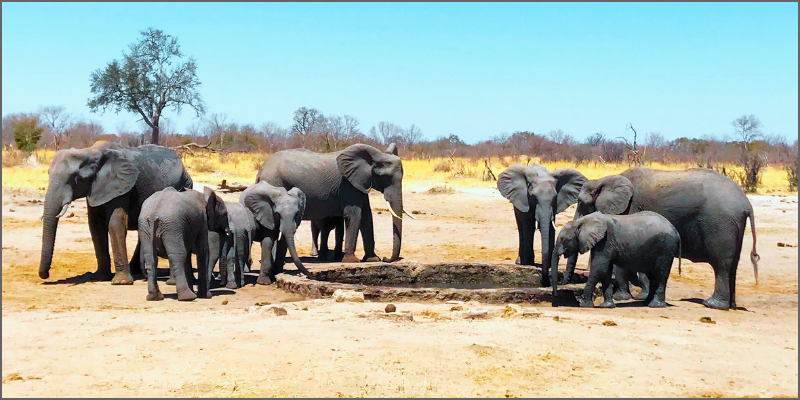Water will be scarce this year
Mar 28, 2024
There is a looming crisis of drought in Hwange this year, and we will all have to think of ways to intervene to avert the loss of more elephants and other species of wildlife. One way we are trying to address this at Gwango is by pumping water to replenish the dwindling water supply at our waterholes. This helps to ensure that vital water sources remain accessible for wildlife, particularly the elephants and other vulnerable species that need enormous volumes of water every day in order survive.
The act of pumping water is a lifeline for wildlife here and we are thankful for the organisations that spend so much time working to support water supply throughout Hwange National Park. It gives us a temporary reprieve from the parched conditions, but this year, we are not sure it will be enough.. When winter comes (June to October) the arid landscape will provide very little to eat, and the elephants will become even more desperate for dehydration. Our already stressed populations of elephants, buffalo and others will become even more vulnerable.
Humans are already highly concerned about the availability of food for 2024, and we know that it will be extremely challenging for our friends in the wild as most of the trees and shrubs that they visit each year will dry up much sooner - so they will likely (out of desperation) dig up the roots in an effort to find food.
The interconnectedness of water and food sources underscores the complexity of ecosystem dynamics in the face of drought. Despite our best efforts to provide water, the looming scarcity of vegetation poses a significant challenge and will potentially lead to malnutrition and wildlife population declines. This really is an example of the multifaceted nature of conservation efforts in Hwange. It underscores the importance of adopting holistic strategies that address both immediate needs, such as water provision, and long-term solutions, including habitat restoration and sustainable land management practices.
This year’s situation also underscores the urgent need for broader action to mitigate the effects of climate change, which exacerbates drought conditions and threatens ecosystems worldwide. To ensure the survival of our precious wildlife, we must address the root causes of environmental degradation and work towards building resilience in vulnerable habitats in regions like Hwange.
The uncertainty of the year ahead serves as a sober reminder of the challenges ahead and the collective responsibility we bear in safeguarding the delicate balance of life in our wild space and beyond.